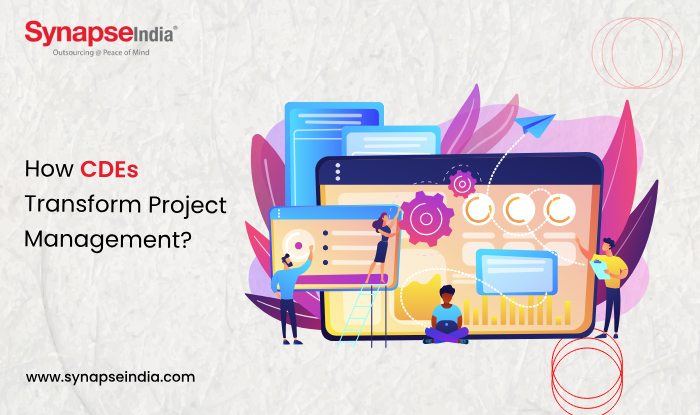 19 Jun 2024
19 Jun 2024
In today's fast-paced and increasingly digital world, effective project management is more critical than ever. As organizations navigate complex projects spanning multiple teams, locations, and stakeholders, the need for streamlined collaboration, efficient communication, and centralized data management becomes paramount. In this context, Common Data Environments (CDEs) have emerged as transformative tools, revolutionizing the way projects are planned, executed, and delivered. In this blog, we explore the profound impact of CDEs on project management practices, examining their benefits, challenges, and future implications.

At its core, a Common Data Environment (CDE) is a centralized digital platform that serves as a single source of truth for project-related information, documents, and data. Unlike traditional project management systems, which often rely on disparate tools and fragmented data sources, CDEs provide a unified ecosystem where all project stakeholders can collaborate, access up-to-date information, and track progress in real time.
CDEs offer a wide range of features and functionality designed to streamline project management processes and enhance collaboration. Some key capabilities include:
CDEs serve as a centralized repository for storing all project-related documents, drawings, models, and data, ensuring that stakeholders have access to the latest information at all times.
CDEs employ robust version control mechanisms to track changes, revisions, and updates to project documents, preventing confusion and ensuring that stakeholders are working with the most current data.
CDEs allow project managers to define role-based access controls, granting or restricting permissions to specific individuals or groups based on their roles and responsibilities within the project.
CDEs provide built-in collaboration tools such as chat, comments, and notifications, facilitating seamless communication and collaboration among project team members, regardless of their location.

CDEs integrate with a variety of project management tools, BIM (Building Information Modeling) software, and other third-party applications, enabling interoperability and data exchange across different systems.
The adoption of CDEs brings numerous benefits to project management practices, including:
By providing a centralized platform for collaboration, CDEs break down silos, foster transparency, and promote teamwork among project stakeholders, leading to more efficient workflows and better decision-making.
With robust version control and centralized data management, CDEs ensure data integrity and accuracy, reducing the risk of errors, inconsistencies, and miscommunication.
CDEs streamline project management processes, automate repetitive tasks, and eliminate manual inefficiencies, allowing project teams to focus on value-added activities and deliver projects more quickly and cost-effectively.
CDEs enable project managers to identify and mitigate risks more effectively by providing real-time visibility into project data, identifying potential issues early, and facilitating proactive decision-making.
While CDEs offer significant benefits, their implementation can also present challenges and considerations for organizations. Some common challenges include:
Protecting sensitive project data and ensuring compliance with data privacy regulations are paramount concerns when implementing CDEs. Organizations must implement robust security measures and protocols to safeguard against data breaches and unauthorized access.
Integrating CDEs with existing systems and workflows can be complex and require careful planning and coordination. Organizations must ensure interoperability and seamless data exchange between CDEs and other project management tools and platforms.
Adopting CDEs requires a cultural shift within organizations, as stakeholders may need to adapt to new ways of working and collaborating. Effective change management strategies, training programs, and stakeholder engagement initiatives are essential to ensure the successful adoption and utilization of CDEs.
Looking ahead, the adoption of CDEs is expected to continue to grow as organizations recognize the transformative potential of these platforms in project management. Advances in technology, such as artificial intelligence (AI), machine learning, and augmented reality (AR), are likely to further enhance the capabilities of CDEs, enabling predictive analytics, automated decision-making, and immersive collaboration experiences.
Moreover, the increasing digitization of the construction industry and the growing demand for sustainable and resilient infrastructure are driving the adoption of CDEs as organizations seek to optimize project delivery processes, minimize waste, and mitigate risks.

